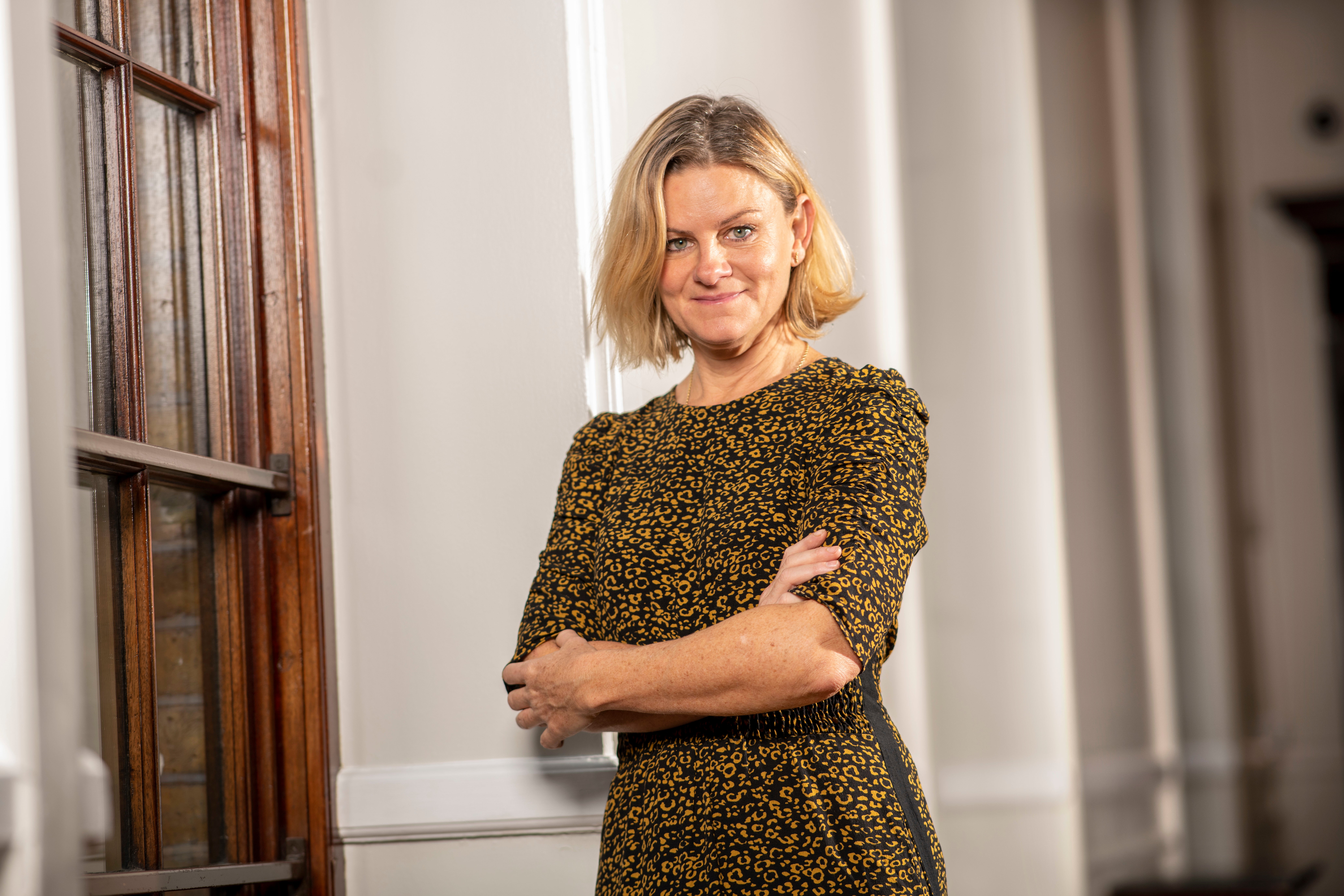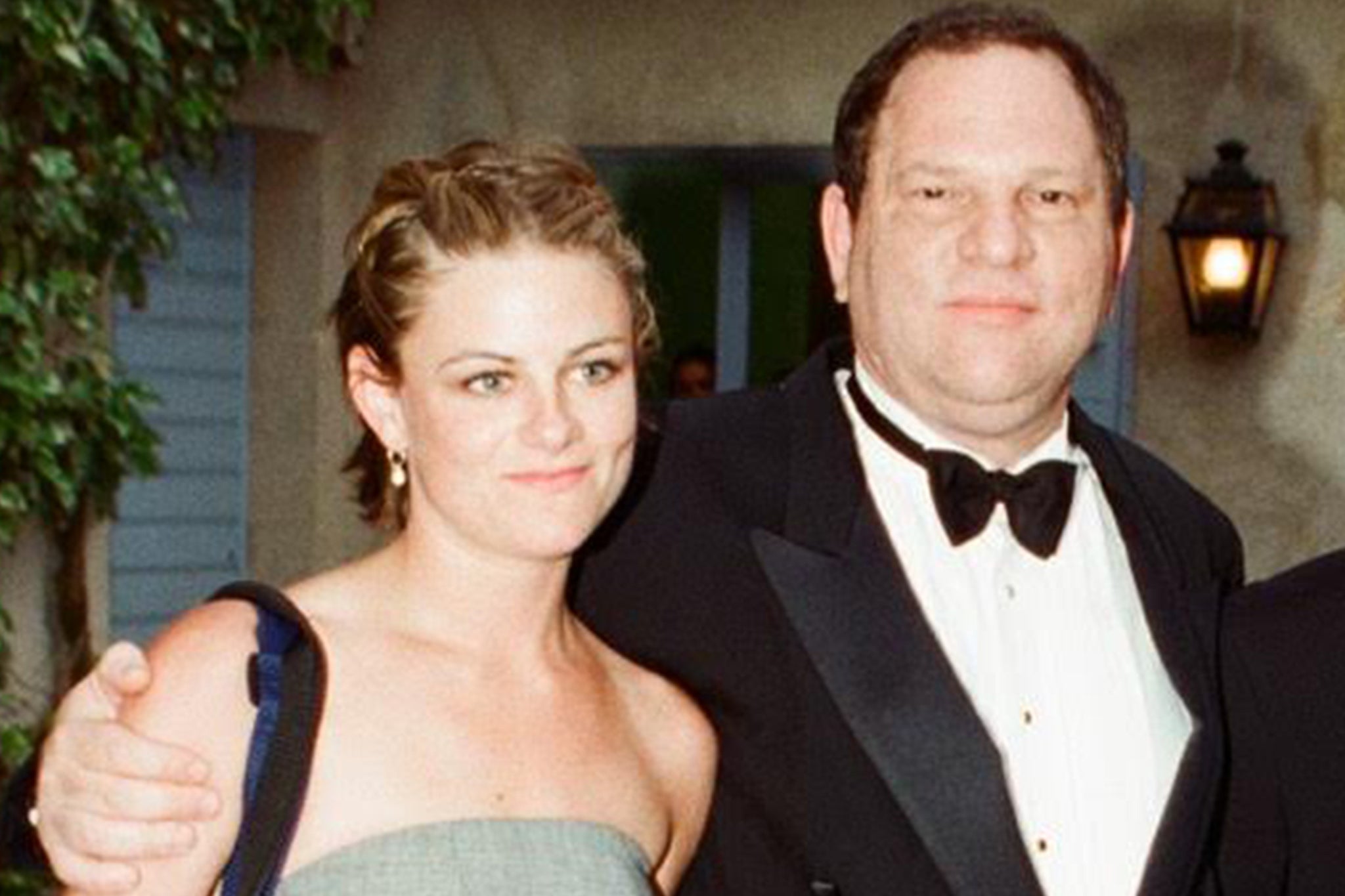I was silenced by Harvey Weinstein – we must change the law protecting predators
Powerful men cover up their crimes against women with non-disclosure agreements, writes Zelda Perkins – the former assistant to disgraced film producer Weinstein. If broadcasters are serious about making Russell Brand their MeToo moment, they must take action to ban NDAs


Twenty-five years ago, I walked into the office of a law firm to report my boss, film producer Harvey Weinstein after he attempted to rape a colleague of mine at the Venice Film Festival.
Instead of receiving the support I needed, I was pressured – on the advice of my lawyers – to sign an incredibly restrictive non-disclosure agreement (NDA) that cost me my career and, to my devastation, allowed Weinstein’s behaviour to continue unchecked for years.
It came as no surprise to me when the Dispatches documentary about Russell Brand alleged that he had resorted to threats of legal action against “Alice” – the 16-year-old girl Brand is alleged to have had a sexual relationship with when he was 30.
This suggests the culture of silence that allowed abusers like Weinstein to act with impunity still exists and that powerful men are still using the threat of legal action to silence their alleged victims.
We might never definitively know whether Brand’s lawyers used NDAs – such is the nature of their secrecy – although I expect over the next few weeks as more details come to light we will find that they did.
What the documentary demonstrated, however, is that Brand, like many other powerful men before him, resorted to threats of legal action when challenged about his alleged behaviour.
Whilst it may be tempting to make ogres of men like Weinstein, the truth is that he was not acting in a vacuum.
The system which enabled, allowed, and ultimately protected Weinstein to commit his crimes is still in place – and it is underpinned by the widespread use of NDAs not only in the entertainment industry but in workplaces across the United Kingdom.
Last week, former Channel 4 News producer Daisy Ayliffe took to the pages of the Spectator to break the NDA she says was imposed on her by ITN.

Like both Alice and I, Ayliffe had placed her faith in the “proper” channels and, buoyed by recent promises made by then ITN chief executive Anna Mallett, reported instances of bullying and harassment suffered by female staff members in the Channel 4 newsroom.
Ayliffe’s reward for coming forward was to be gagged by ITN (who make CH4 news) and made to sign an NDA that had a devastating impact on her health, she says, and like so many signatories of abusive NDAs, left her completely isolated.
Sadly, Ayliffe’s experience is all too common – as recent scandals facilitated by their use at McDonald’s and Odey Asset Management have shown, abusive NDAs are standard across so many industries, often with catastrophic consequences for those who sign them.
In fact, most report that the damage inflicted by being silenced, forever not being able to own or deal with your own trauma, ultimately is worse than the initial damage they reported.
If broadcasters are serious about turning the Brand allegations into TV’s “MeToo moment” – in the words of Channel 4’s former head of news Dorothy Byrne – they must be willing to investigate their current processes and take concrete action on abusive NDAs.
According to Sarah Jones, the BBC’s general counsel – who was giving evidence to the women and select committee’s inquiry into the misuse of NDAs – the corporation has not used NDAs or confidentiality clauses in settlements since 2015.
If true, this is commendable and we hope they will be one of the first media organisations to take our pledge to never use NDAs to silence abuse.
The BBC director general Tim Davie has initiated a review into Brand’s career with the organisation. However, reviews alone will not tackle the underlying culture.
To do that, broadcasters must commit to dismantling the systems of power used by abusers to silence their victims – and banning abusive NDAs is the first step towards that.
This week, Can’t Buy My Silence has written to the heads of the BBC, ITN, ITV, and Channel 4 calling for them to sign our voluntary business pledge promising never to use NDAs to silence victims of sexism, harassment, abuse, or discrimination.
Having turned a blind eye to Brand’s alleged behaviour for years, the BBC, ITV, and Channel 4 can choose to take TV’s “MeToo moment” as an opportunity to lead by example.
Pledging never to use abusive NDAs again will allow broadcasters to begin to make amends for some of the hurt they enabled and redress the power imbalance that contributed to women like Alice and Ayliffe being silenced.
Only once abusive NDAs are a thing of the past can broadcasters create a culture where misconduct, sexism, and abuse are tackled at the root, and men like Harvey Weinstein and Russell Brand are no longer allowed to flourish.
Following publication, ITN gave the following statement: “ITN has never sought to prevent anyone raising concerns about serious wrongdoing in the workplace, and we entirely refute any allegations to the contrary. We take our responsibilities to staff extremely seriously and apply our rigorous journalistic standards to our own internal processes, including clear whistleblowing policies and a commitment to fair and thorough investigation of any allegations of wrongdoing. We are always open to listening and will respond directly to anyone who contacts us on this important issue; and since April 2022 we no longer use confidentiality clauses unless in exceptional circumstances: for example, where the individual had themselves requested it or where there is a duty of care to all parties involved in a dispute.”
Zelda Perkins is the co-founder and director of the campaign group Can’t Buy My Silence




Join our commenting forum
Join thought-provoking conversations, follow other Independent readers and see their replies
0Comments